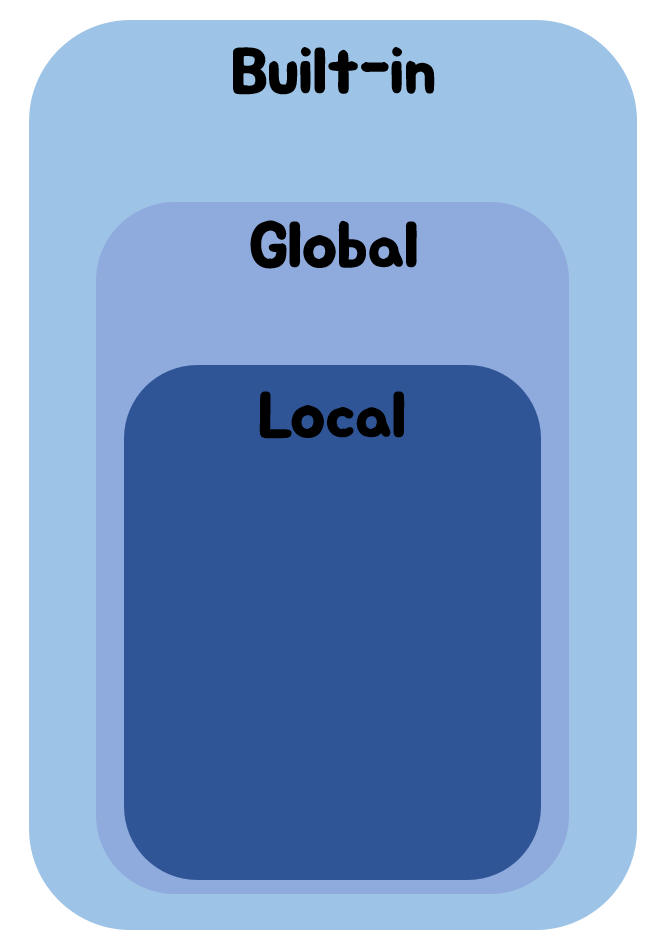메타클래스에 대해 알아보기 이전에 파이썬의 데이터 모델에 대한 이해가 필요하다.
파이썬에서 모든 것은 데이터를 추상화 한 객체로 이루어져 있다.
또한, 파이썬의 객체는 아이덴티티, 값, 타입을 가지고 있다.
아이덴티티 (id)
id() 함수를 통해 얻을 수 있으며 객체의 수명동안 유일하고 불변함이 보장되는 정수다.
값 (value)
객체의 타입에 따라 불변할 수 있고 가변할 수도 있다. ex)tuple : 불변, list : 가변
타입 (type)
객체가 지원하는 연산들과 그 타입의 객체가 가질 수 있는 값(ex) int : 1, list : [1,2])들을 통해 객체의 특성을 정의한다. 객체의 타입은 type()을 통해 얻을 수 있으며, 불변하다.
여기서 말한 타입과 같이 파이썬의 모든 객체들은 어떠한 타입에 의해 정의된다.
파이썬의 type() 빌트인 함수를 사용하면 객체의 타입을 알 수 있다.
class Test:
pass
t = Test()
type(t)
# <class '__main__.Test'>
def hello():
pass
type(hello)
# <class 'function'>
type(1)
# <class 'int'>
위 예제를 보면 Test 클래스의 인스턴스인 t는 Test가 타입이고, hello 함수는 function이 타입이며, 정수 1은 int가 타입이다.
그렇다면, Test 클래스의 타입은 존재할까?
class Test:
pass
type(Test)
# <class 'type'>
놀랍게도, Test 클래스 객체의 타입이 존재한다.
여기서 출력된 type을 Test 클래스의 메타 클래스라고 하며, 인스턴스로 클래스를 가진다.
그러면 메타클래스는 무슨 용도로 사용하는 걸까?
그전에 몇가지 메타클래스의 매직 메소드에 대해 알아보자
class TestMeta(type):
def __prepare__(mcs, *args, **kwarg): # 메타 클래스가 결정되었을 때 (mro가 구성된 후) 클래스 정의를 위해 호출된다.
# mcs = metaclass
print("__prepare__()")
return super.__prepare__(mcs, *args, **kwarg)
def __new__(mcs, *args, **kwargs): # 클래스를 생성 할 때 호출됨
# mcs = metaclass
print("__new__()")
return super().__new__(mcs, *args, **kwargs)
def __init__(cls, *args, **kwargs): # 클래스가 생성 된 후 호출됨
print("__init__()")
super().__init__(*args, **kwargs)
def __call__(cls, *args, **kwargs): # 클래스의 인스턴스를 생성할 때 호출됨
print("__call__()")
return super().__call__(*args, **kwargs)
class Test(metaclass=TestMeta):
pass
# __prepare__()
# __new__()
# __init__()
t = Test()
# __call__()
위 코드를 보면 __prepare__, __new__, __init__, __call__ 메소드를 작성하고 사용하는 것을 볼 수 있다.
__prepare__ 메소드는 메타 클래스가 결정되었을 때 호출되며, 클래스의 네임 스페이스를 준비한다.__new__ 메소드는 클래스 객체를 생성 할 때 호출된다.__init__ 메소드는 클래스가 생성 된 후 호출되어 클래스를 초기화 한다.__call__ 메소드는 클래스의 인스턴스를 생성 할 때 호출 된다.
이 매직 메서드를 가지고 무슨 일을 할 수 있을까?
싱글톤 패턴 구현
싱글톤 패턴은 클래스의 인스턴스화를 항상 하나의 개체로만 제한하는 설계 패턴이다.
구현해 보자면
class SingletonMeta(type):
_instances = {}
def __call__(cls, *args, **kwargs):
if cls not in cls._instances:
cls._instances[cls] = super().__call__(*args, **kwargs)
return cls._instances[cls]
class SingletonClass(metaclass=SingletonMeta):
pass
sl1 = SingletonClass()
sl2 = SingletonClass()
print(id(sl1))
# 1877212284048
print(id(sl2))
# 1877212284048
인스턴스 생성에 관여하는 __call__()메소드를 오버라이딩 해서 클래스를 key로 두고 인스턴스를 value로 만들어 클래스당 하나의 인스턴스를 가지도록 했다.
애트리뷰트 검증
DRF의 ModelSerializer 에는 내부 Meta 클래스가 없다면 오류를 일으킨다. 이에 대한 오류 검증을 DRF에서는 get_fields() 메소드에 구현해 두었는데, 이를 메타 클래스로 검증 할 수 있을 것 같다.
def get_fields(self):
...
assert hasattr(self, 'Meta'), (
'Class {serializer_class} missing "Meta" attribute'.format(
serializer_class=self.__class__.__name__
)
)
...
위 코드는 클래스 내부에 Meta 애트리뷰트가 있는지 확인하는 코드이다. 이를 메타클래스로 검증하는 코드를 짜보자
class ModelSerializerMetaclass(SerializerMetaclass):
def __new__(mcs, *args, **kwargs):
name, bases, namespace = args
if name not in ("ModelSerializer","HyperlinkedModelSerializer"):
mcs._check_meta(name,namespace)
return super().__new__(mcs, *args, **kwargs)
def _check_meta(name,namespace):
if not namespace.get("Meta", None):
raise Exception(f'Class {name} missing "Meta" attribute')
return
class ModelSerializer(Serializer, metaclass=ModelSerializerMetaclass):
pass


